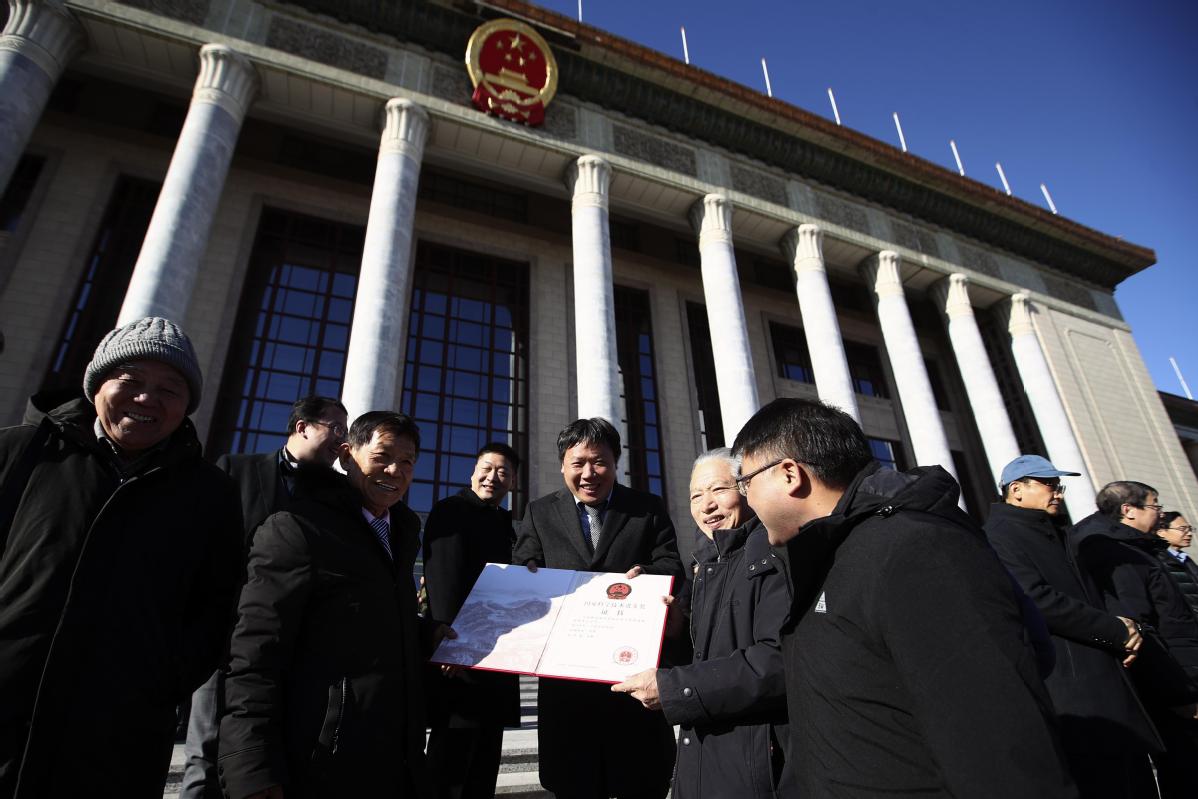Prestigious award honors scientists


Prize money boost reflects 'care and support Party and nation have for science workers'
More prize money, breakthroughs in basic research and innovation to benefit the nation are the main characteristics of this year's National Science and Technology Awards presented in Beijing on Tuesday
The prize money for the State Preeminent Science and Technology Award, China's top scientific honor, has been raised from 5 million yuan ($725,000) to 8 million yuan, according to the Ministry of Science and Technology.
The prize money in other categories-such as the State Natural Science Award, State Technology Innovation Award, and State Science and Technology Progress Award-also rose by 50 percent, the ministry said in an online statement.
This first-ever change in the prize for the top award, which began in 2000, "fully embodies the care and support the Party and the nation have for science workers", the statement said.
The overall quality and global impact of the winning projects have improved in recent years, according to the National Office for Science and Technology Awards. China has produced first prize winners of the State Natural Science Award, the nation's highest honor for basic research, for six consecutive years.
This year, Xue Qikun, vice-president of Tsinghua University, received first prize for discovering the quantum anomalous Hall effect in 2013.
That discovery has been globally recognized as one of the greatest in condensed matter physics in recent years because of its potential of creating electronics with reduced energy cost and heat emission. It allows engineers to create even more powerful supercomputers.
"Our discovery could not have been made without the growing national capabilities, robust policy support, scientific and systematic planning, and a thriving environment of innovation, all results of the 40 years of reform and opening-up," Xue said.
China has also consolidated its role as one of the world leaders in chemistry and material science, with many basic research projects in graphene, alloys and nanomaterials winning second prizes in the natural science category this year.
These achievements have spurred a catalysis in industrial production and other advanced materials that are more effective in applications and less harmful to the environment and people's health. Of the 119 foreign evaluations for the winners in the natural science category, 94 percent of foreign scientists said the Chinese projects have great scientific value in their respective fields.
The national awards are also given to innovations that have made profound contributions to the economy and people's health.
Huang Sanwen, the director of the Agricultural Genomics Institute of the Chinese Academy of Agricultural Sciences in Shenzhen, Guangdong province, won second prize in the natural science category for creating better tasting cucumbers.
- Xizang's first ultra-high voltage power link begins operations
- New subsidies provided for HK fire victims' resettlement
- World's longest expressway tunnel to open to traffic in Xinjiang by year-end
- HKSAR govt releases first-ever Chinese medicine development blueprint
- Ten photos from across China: Dec 12 - 18
- Visa-free measures spur surge in visitors




































